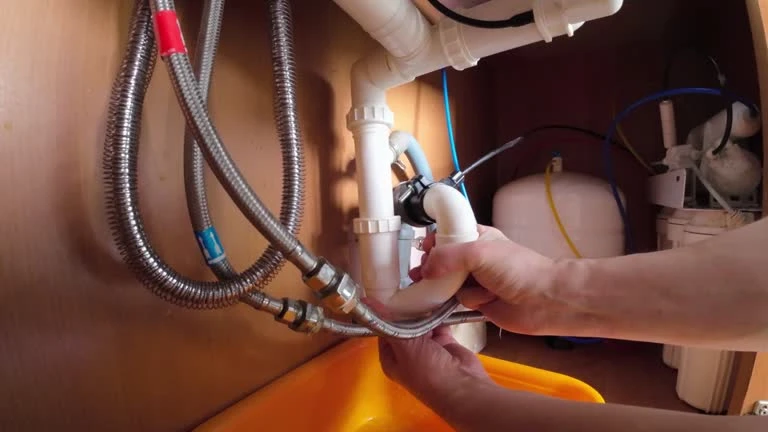Introduction to Automated gate valve Systems
Automated gate valve systems are becoming an essential component in smart factories. These systems offer precise control over fluid flow, enabling manufacturers to optimize their operations. By integrating automation technology, gate valves can be operated remotely, improving safety and efficiency. As industries continue to modernize, the use of automated gate valves in smart factories is increasing rapidly, providing new opportunities for process optimization.
Enhanced Efficiency in Smart Factories
One of the main advantages of automated gate valve systems is their ability to improve operational efficiency. In smart factories, these systems allow real-time control and monitoring of fluid flow, helping reduce downtime and minimize human intervention. Automated valves adjust fluid flow accurately based on sensor data, ensuring optimal performance. This level of automation streamlines processes and improves overall factory efficiency.
Precision in Fluid Control
Automated gate valve systems offer precise control over fluid dynamics, a critical requirement in many industrial settings. In smart factories, controlling fluids accurately ensures product quality and process consistency. For instance, in chemical manufacturing, precise fluid control is essential to avoid product contamination or reaction inconsistencies. Automated valves can quickly respond to changes in flow requirements, making them ideal for such sensitive applications.
Challenges in System Integration
Despite their benefits, integrating automated gate valve systems into smart factories presents certain challenges. First, the installation process can be complex, requiring specialized knowledge and equipment. Ensuring compatibility with existing factory infrastructure is also a concern. Additionally, the upfront costs for these systems can be high, which may deter some manufacturers from adopting them. Overcoming these integration challenges is critical to unlocking the full potential of automated valve systems.
Maintenance and Technical Issues
Automated gate valves require ongoing maintenance to function correctly. While they reduce manual intervention, they introduce new technical challenges, such as the need for regular software updates and sensor calibration. Smart factories must invest in trained personnel to manage and maintain these systems. Failure to do so can lead to unexpected malfunctions, resulting in costly production delays. Proper maintenance plans are essential for the long-term success of automated gate valve systems.
Data-Driven Decision Making
One of the key advantages of automated systems is their ability to collect and analyze data. Automated gate valve systems provide real-time data on fluid flow, pressure, and valve positioning. In smart factories, this data is used for predictive maintenance and process optimization. For example, by analyzing valve performance, manufacturers can identify potential issues before they cause a failure, reducing downtime and repair costs.
Energy Efficiency and Sustainability
Automated gate valves contribute to the energy efficiency of smart factories. These systems ensure optimal fluid flow, reducing energy consumption associated with pumping fluids. By precisely controlling the flow, factories can minimize wastage and optimize resource usage. This not only lowers operational costs but also aligns with sustainability goals, as industries increasingly focus on reducing their environmental footprint.
Future Prospects and Innovations
As smart factories evolve, the future of automated gate valve systems looks promising. Innovations in sensor technology, machine learning, and AI will further enhance the capabilities of these systems. For example, predictive algorithms may allow gate valves to adjust automatically based on real-time conditions, further improving efficiency and reducing the need for manual intervention. The ongoing advancements in automation technology ensure that gate valve systems will continue to play a key role in smart factories.
Conclusion: Balancing Benefits and Challenges
Automated gate valve systems offer numerous advantages for smart factories, from enhanced efficiency and precise fluid control to sustainability improvements. However, manufacturers must navigate several challenges, including system integration and ongoing maintenance. By addressing these issues, smart factories can fully benefit from the capabilities of automated gate valves, ensuring smooth operations, better product quality, and reduced costs.
IFAN products international standards
The IFAN PPR piping system adheres to international standards, including ISO 15874 series, EN 15874 series, ASTM F2389, DIN 8077/8078, GB/T 18742 series, and NBR 15884.
Connect
IFAN is a Chinese manufacturer of plastic pipes, fittings and valves with 30 years of experience. If you are interest in IFAN copper fittings, copper valves, plastic pipes and fittings, please contact us. IFAN offers you a variety of standard pipes to meet your specific needs. Click below to learn more about IFAN’s wide range of affordable and cost-effective valve products and piping system related products.
We will reply your email or fax within 24 hours.
You can call us at any time if there is any question on our production.
For more information,pls visit our webside https://waterpipefitting.com/
Pls Mailto: [email protected]
Whatsapp: + 86 19857948982














Recent Comments